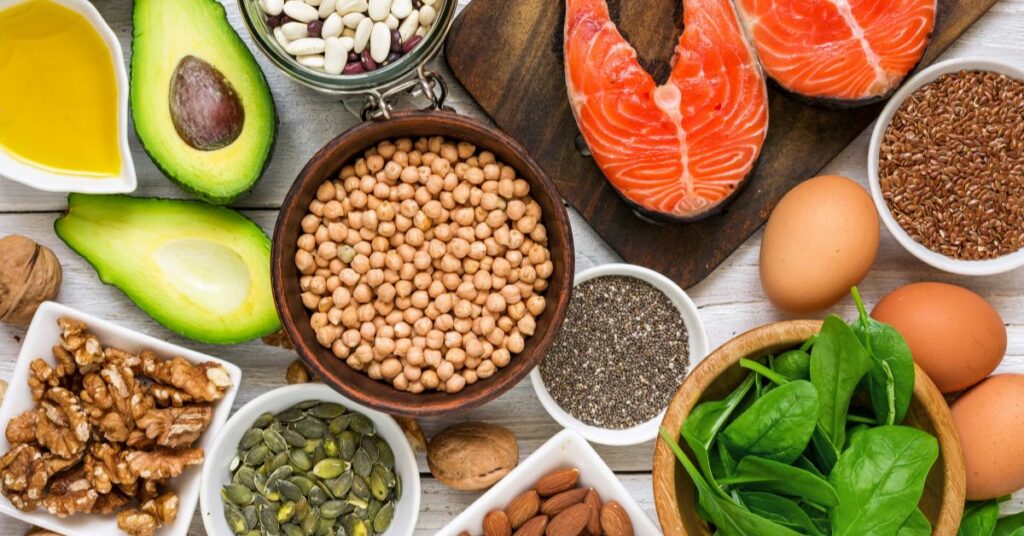Menopause is a significant milestone in a woman’s life, often bringing about a host of physical and emotional changes. Managing these changes effectively through diet is crucial. However, since no two women experience menopause in the same way, personalized nutrition is vital during this transition. In this post, we’ll explore the key elements of a menopause diet and discuss why tailoring your nutrition to your specific needs can make a significant difference.
Understanding Menopause and Its Impact on the Body
Menopause typically occurs between the ages of 45 and 55, marking the end of a woman’s menstrual cycles. During this transition, estrogen and progesterone levels drop significantly, leading to various symptoms, such as:
- Hot flashes and night sweats
- Mood swings and irritability
- Weight gain, particularly around the abdomen
- Decreased bone density
- Increased risk of heart disease
These symptoms result from a combination of factors, including genetics, lifestyle, and pre-existing health conditions. Therefore, a one-size-fits-all diet may not be effective.
Key Nutritional Needs During Menopause
While each woman’s menopause experience is unique, some common nutritional needs should be addressed:

Calcium and Vitamin D: Lower estrogen levels increase the risk of osteoporosis, making calcium and vitamin D essential for bone health.

Phytoestrogens: Foods like soy, flaxseeds, and legumes contain phytoestrogens. These compounds mimic estrogen’s effects and may help relieve some menopausal symptoms.

Healthy Fats: Omega-3 fatty acids, found in fish, walnuts, and flaxseeds, support heart health, which becomes more critical during menopause. These fats also help reduce inflammation and improve mood.

Fiber: A fiber-rich diet aids in weight management, supports digestive health, and lowers heart disease risk.

Antioxidants: Foods rich in antioxidants, such as fruits and vegetables, combat oxidative stress, which increases during menopause and contributes to aging and chronic diseases.
Why Personalized Nutrition Matters
Personalized nutrition during menopause is crucial for several reasons:
Tailored Symptom Management: Not all women experience the same symptoms with the same intensity. While some may struggle with severe hot flashes, others may be more concerned with weight gain or mood swings. A personalized diet targets specific issues, making menopause management more effective.
Consideration of Pre-Existing Conditions: Women entering menopause often have pre-existing health conditions, such as diabetes, hypertension, or thyroid issues. A diet tailored to their individual health profile can help manage these conditions alongside menopausal symptoms.
Cultural and Lifestyle Factors: Dietary habits are influenced by culture, lifestyle, and personal preferences. Personalized nutrition considers these factors, ensuring dietary recommendations are practical and sustainable.
Genetic Factors: Emerging research suggests that genetics can influence how a woman experiences menopause. Personalized nutrition that considers genetic factors can help optimize diet plans for better health outcomes.
How to Develop a Personalized Menopause Diet
Creating a personalized menopause diet involves working with a healthcare provider or nutritionist to assess your individual needs. Here are some steps you can take:
- Consult with a healthcare provider: Discuss your symptoms, health history, and any concerns about menopause. They can provide valuable guidance on what nutrients to focus on.
- Work with a Registered Dietitian Nutritionist: A nutritionist can help you develop a meal plan that caters to your specific needs and preferences, ensuring you’re getting the right balance of nutrients.
- Monitor your symptoms: Track how your body responds to dietary changes. This will help you and your healthcare provider make adjustments as needed.
- Stay informed: Menopause brings significant changes, so staying informed about the latest research on diet and menopause can help you make better decisions about your health.
Conclusion
Menopause is a natural part of aging, but the symptoms can be challenging to manage. A well-balanced diet is a powerful tool in navigating this stage of life, and its effectiveness is greatly enhanced when personalized to your unique needs. By focusing on tailored nutrition, you can address specific symptoms, support overall health, and improve your quality of life during menopause.
As a dietitian in the perimenopausal stage, I understand the unique challenges you’re facing. If you’re ready to take control of your health through personalized nutrition, I can help you create a plan that fits your lifestyle and symptoms. Contact me today to start your journey toward a healthier, more empowered menopause experience.

